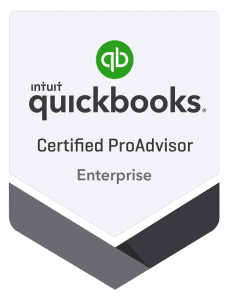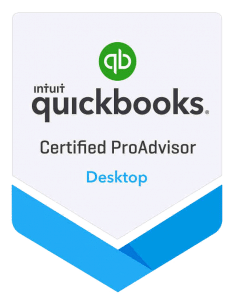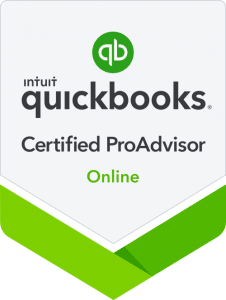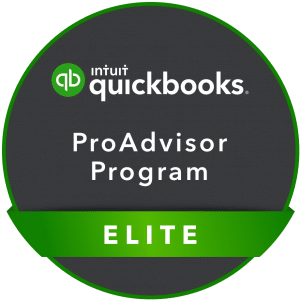Most small businesses in the United States don’t have a clear picture of where their money is going, as reported in PR Newswire. Without proper financial tracking, expenses can quickly spiral out of control, leading to cash flow issues and missed growth opportunities. Here at Cloud Bookkeeping, we help businesses take control of their finances with smarter expense management solutions.
In this blog post, we’ll break down why tracking business expenses is essential and the key metrics that every business should track. By the end, you’ll have a clearer understanding of how to manage your money more effectively and set your business up for long-term success. Let’s get started.
Why Proper Bookkeeping Matters
Proper bookkeeping is essential for the financial health of any small business. Without accurate records, it’s easy to:
- Lose track of expenses
- Miscalculate profits
- Run into cash flow problems.
As noted above, many small businesses struggle because they don’t know where their money is being spent, making it difficult to budget effectively or plan for growth.
Keeping detailed financial records helps business owners make informed decisions. With clear insights into income and expenses, they can identify unnecessary costs, spot trends, and allocate resources more efficiently. It also simplifies tax preparation, reducing the risk of errors, penalties, or audits.
Good bookkeeping practices improve credibility with investors, lenders, and vendors. If a business ever needs a loan or funding, having organized financial records increases the chances of approval.
Staying on top of bookkeeping means that small businesses can maintain stability, avoid financial surprises, and focus on growth. It’s not just about compliance – it’s about making smarter business decisions.
Key Financial Metrics Every Business Should Track
Understanding key financial metrics helps small businesses maintain profitability and make informed decisions. Without tracking these numbers, it’s easy to overlook financial warning signs that can lead to cash shortages or unsustainable expenses. By regularly monitoring financial performance, business owners can plan ahead, make strategic adjustments, and improve long-term success.
Revenue
Revenue is the total amount of money a business makes from sales (that is, before subtracting any expenses). It’s a fundamental metric that reflects overall business performance. Monitoring revenue trends over time helps businesses identify patterns, such as seasonal fluctuations or declining sales, which can inform marketing and pricing strategies.
A consistent increase in revenue indicates growth, while stagnation or decline may signal the need for adjustments. Breaking down revenue by product, service, or customer segment can also highlight which areas of the business are most profitable.
Net Profit
Net profit, often referred to as the bottom line, represents the money left after deducting all expenses, including:
- Operating costs
- Salaries
- Taxes
- Interest
A business can generate high revenue but still struggle if expenses are too high. Regularly reviewing net profit helps business owners understand their true earnings and determine if cost-cutting measures are necessary.
Comparing net profit to revenue provides insight into profitability margins. If the percentage of net profit is low, it may be time to adjust pricing, streamline operations, or renegotiate supplier contracts. Long-term growth depends on maintaining a strong and sustainable profit margin.
Cash Flow
Cash flow is the movement of money in and out of a business, and it’s one of the most critical factors for financial stability. Even a profitable business can run into trouble if it doesn’t have enough cash on hand to cover operating expenses. Positive cash flow means a business has more money coming in than going out, allowing it to:
- Pay bills
- Invest in growth
- Manage unexpected costs
Negative cash flow, on the other hand, can lead to late payments, difficulty covering payroll, and even business closure. Tracking cash flow regularly helps business owners anticipate shortfalls and take action, such as adjusting payment terms with customers or securing a line of credit to bridge gaps.
Accounts Receivable and Accounts Payable
Accounts receivable (AR) represents money owed to a business by customers, while accounts payable (AP) is the money a business owes to suppliers and vendors. Keeping a close eye on AR ensures that customers are paying on time, preventing cash flow issues. A high amount of overdue receivables can signal inefficiencies in the invoicing process or a need to enforce stricter payment terms.
On the other hand, managing AP effectively ensures that businesses pay their obligations on time without negatively impacting cash flow. Balancing AR and AP is key to maintaining healthy financial operations. Businesses should implement clear payment policies and consider offering early payment discounts or penalties for late payments to keep cash moving smoothly.
Gross Margin
Gross margin is the percentage of revenue that remains after subtracting the cost of goods sold (COGS). It’s a key profitability metric that helps businesses determine whether they are pricing their products or services correctly. A high gross margin indicates strong profitability, while a low margin suggests that costs may be too high or prices too low.
Regularly analyzing gross margin allows businesses to find ways to improve efficiency, such as:
- Negotiating better supplier prices
- Reducing waste
- Adjusting pricing structures
Understanding gross margin also helps businesses compare their performance to industry benchmarks and competitors. If margins are shrinking, it’s a signal that changes need to be made to maintain profitability.
How Cloud Bookkeeping Can Help
Cloud Bookkeeping provides small businesses with the financial clarity they need to succeed. Our expert bookkeeping services ensure that every dollar is accounted for, giving business owners a clear view of their revenue, expenses, and profitability. With accurate records and real-time insights, you can make informed decisions that support growth and long-term stability.
We handle everything from tracking key financial metrics to managing cash flow, accounts receivable, and expenses. Our team helps businesses stay organized, avoid costly errors, and remain compliant with tax regulations. By partnering with Cloud Bookkeeping, you can focus on running your business while we take care of your financial records.
Improve Bookkeeping Practices with Us
In summary, proper financial management strategies and accurate business financial tracking are essential for long-term success. Cloud Bookkeeping takes the stress out of managing your finances, giving you the clarity and control you need.
Contact us to learn how our expert bookkeeping services can help you stay organized, maximize profits, and make smarter financial decisions for your business.






